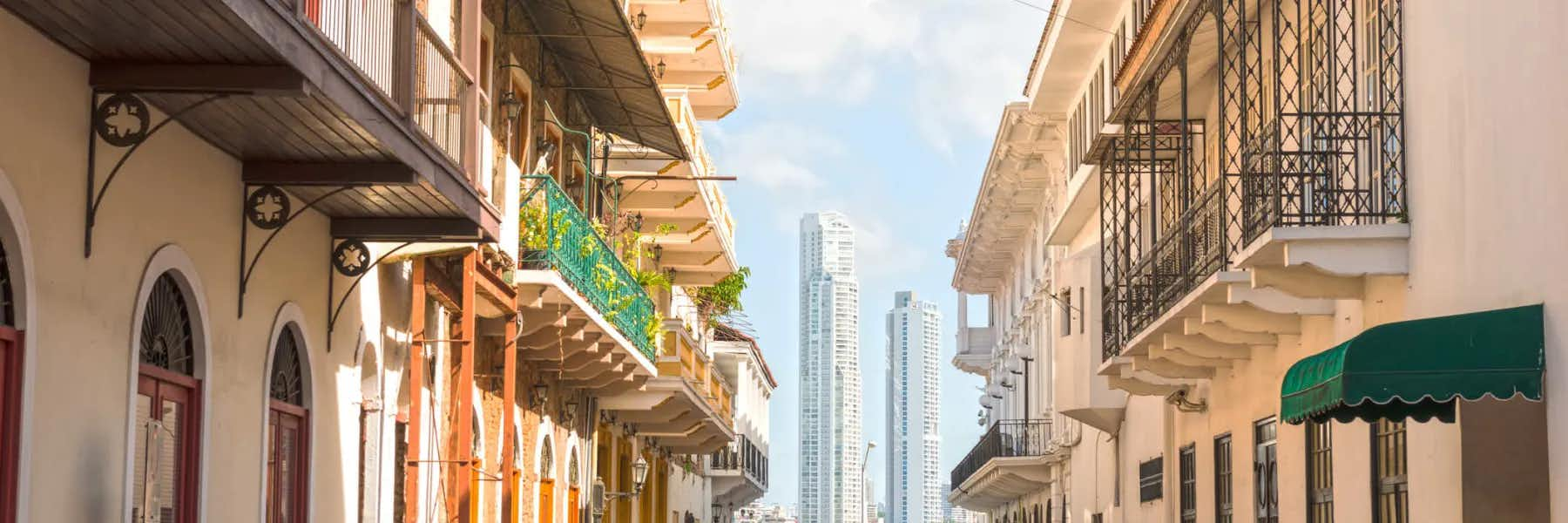This category’s high scorers offer retirees affordable residency options, attractive visa benefits, and a welcoming lifestyle abroad.
From Ecuador’s accessible Pensioner Visa to Panama’s generous Pensionado program, each country offers unique advantages for expats planning a new life overseas. This report delves into the specific visa processes, recent policy changes, and exclusive retiree benefits in Ecuador, Mexico, Spain, Costa Rica, and Panama, giving readers a comprehensive view of each country’s appeal.
Whether you’re considering a seasonal move or long-term residency, our expats have highlighted the main visa options, requirements, residency benefits, and additional perks, helping readers understand what it takes to settle comfortably abroad.
The World’s Best Retirement Havens for 2025
The World’s Best Retirement Havens for 2025
20 Countries Compared, Contrasted, Ranked, and Rated. You don’t have to be rich to enjoy a pampered retirement, you just need to know where to go. With our 34th Annual Global Retirement Index, our experts hand you a detailed roadmap. Details—and a Special Offer—Here

By submitting your email address, you will receive a free subscription to IL Postcards and special offers from International Living and our affiliates. You can unsubscribe at any time, and we encourage you to read more about our Privacy Policy.
5. Spain
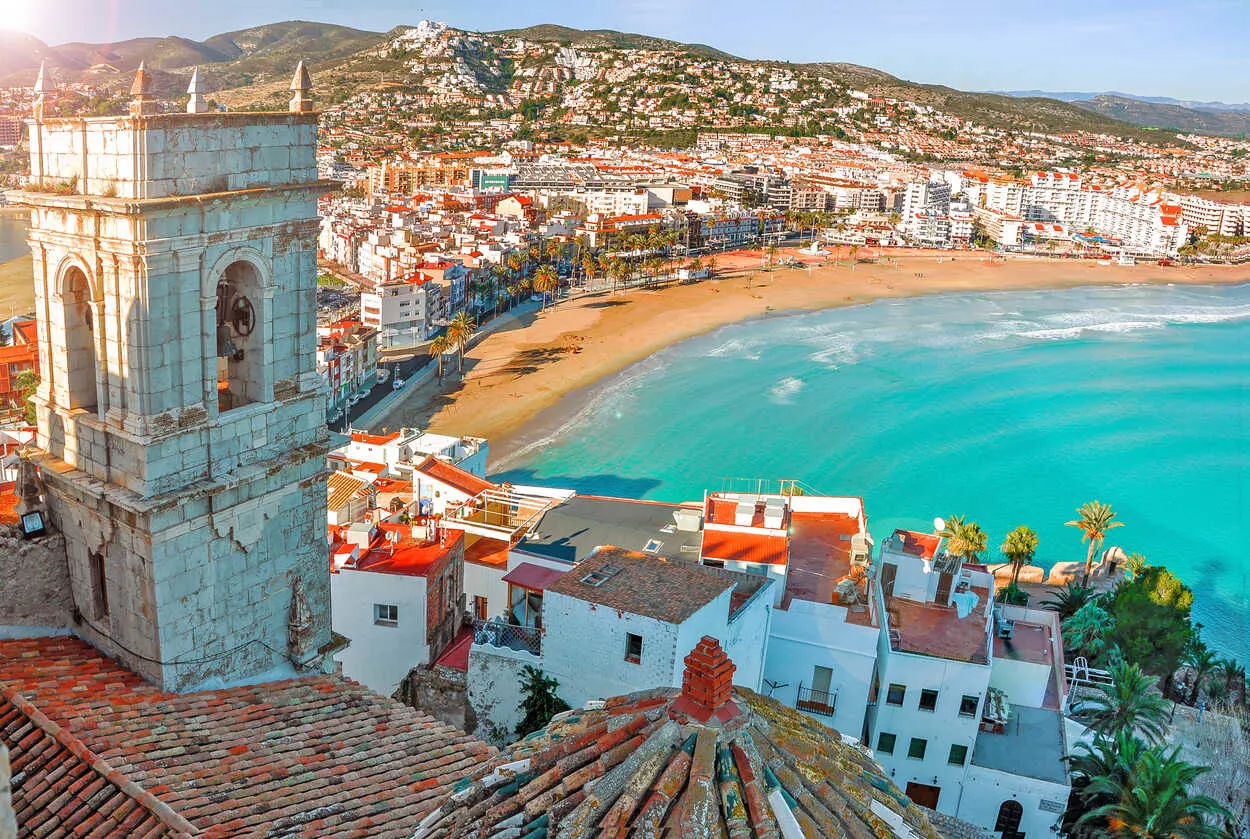
By Cepee Tabibian
Spain has become increasingly attractive for remote workers, families, and retirees seeking a warm climate, vibrant culture, stunning landscapes, and affordability. In recent years, it has emerged as one of the easiest European countries for non-Europeans to relocate to, thanks to an array of accessible visa options. This is a stark contrast to the past, when pathways to residency were more limited, often requiring teaching English, corporate transfers, or marrying a Spaniard.
The introduction of the Golden Visa program in 2013 marked a significant shift. This investment-based visa grants residency to individuals who invest at least €500,000 in Spanish real estate. It’s a straightforward route for those who can afford it, making it particularly appealing to expats interested in Spain’s dynamic property market.
Another popular option is the Non-Lucrative Visa, designed for retirees or those with passive income. To qualify, applicants must demonstrate financial self-sufficiency, with a current requirement of approximately €29,000 annually, which is subject to periodic increases. This visa provides a flexible solution for those seeking to enjoy Spain’s lifestyle without engaging in local employment.
Spain has also embraced the rise of remote work with the introduction of the Digital Nomad Visa. This visa allows freelancers, self-employed individuals, and remote employees to live in Spain while working for companies outside the country. With a financial requirement of around €2,600 per month, it’s an ideal option for digital professionals looking to combine work with the Mediterranean lifestyle.
Qualifying for these visas is relatively straightforward if you meet the financial requirements, maintain a clean criminal record, and have good health. An added bonus is that many of these visas allow you to bring dependents, such as a spouse, children, and sometimes even parents. After five years of legal residency, you can apply for permanent residency, opening the door to long-term settlement.
However, immigration policies can change. For instance, Portugal recently discontinued its Golden Visa program, and Spain has announced plans to phase out its own. While still available for now, this underscores the importance of applying sooner rather than later if you find a visa that fits your needs.
For those who qualify, Spain also offers tax incentives through the Beckham Law. This program allows new residents to be taxed only on their Spanish-sourced income at a flat rate of 24% for income up to €600,000, with higher earnings taxed at 45%. This favorable tax regime lasts for the first six years of residency, making it a major draw for high earners. However, it’s important to note that self-employed individuals, including many Digital Nomad Visa holders, are excluded from this benefit.
Spain has also launched initiatives to encourage population growth in rural areas. One standout program offers financial incentives for remote workers and digital nomads willing to relocate to less populated regions like Extremadura. Here, the government provides grants of up to €15,000 for those who commit to living and working in these areas for at least two years. These initiatives aim to revitalize rural communities by attracting young people, women, and tech professionals.
Whether you’re looking for a bustling city life, a peaceful rural retreat, or a balance of both, Spain’s residency options and incentives make it an excellent choice for expats seeking a new home.
Full Guide to Visa and Residency in Spain Here.
4. Ecuador
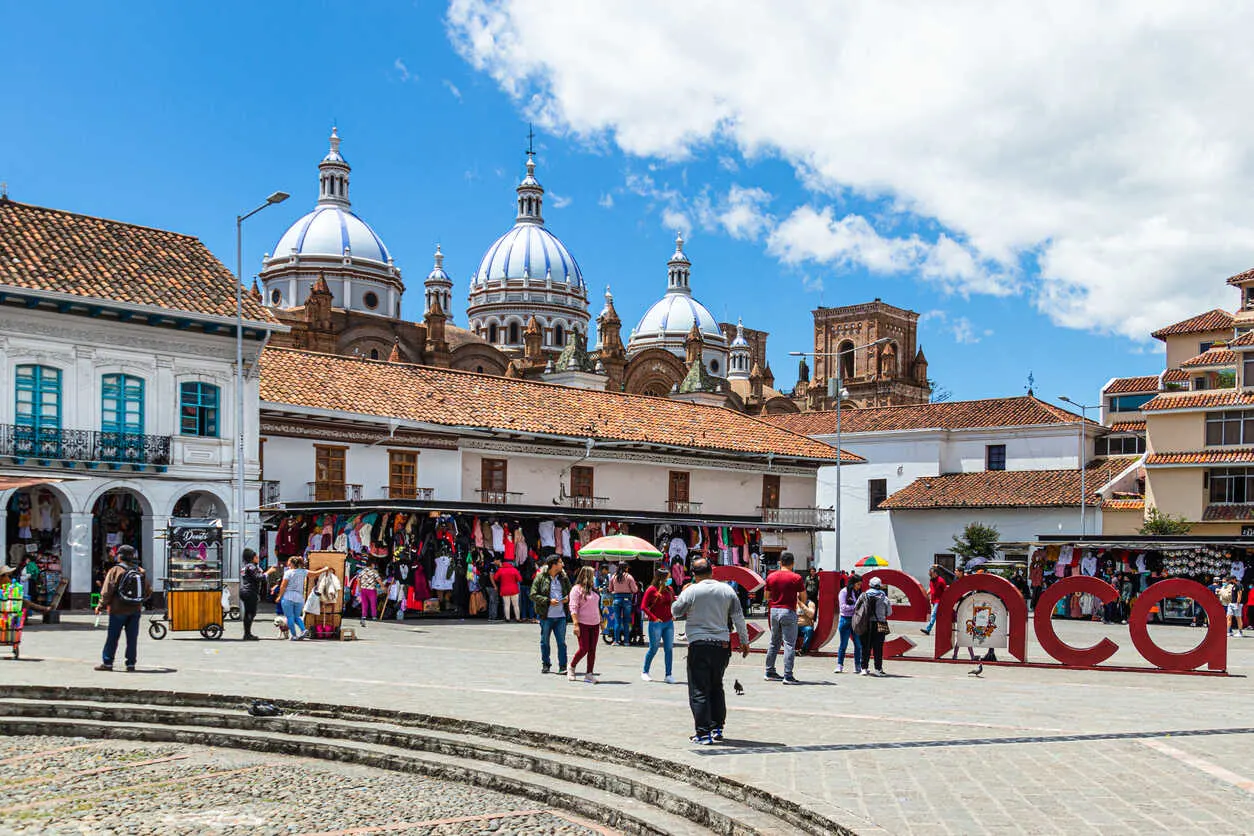
By Joel Kaplan
Ecuador is well-known for its accessible visa and residency options, making it a popular destination for retirees. The most widely chosen option is the Pensioner Visa (Pensionado), designed for individuals receiving a steady income from pensions, Social Security, or other retirement funds. Notably, you don’t need to be 65 or older to qualify. To be eligible, applicants must demonstrate a monthly income of at least $1,380, with an additional $200 for each dependent. This makes the Pensioner Visa attainable for many retirees.
The application process for the Pensioner Visa is relatively straightforward, requiring essential documents such as proof of income, a clean criminal record, and a valid passport. In recent years, the Ecuadorian government has worked to streamline this process, reducing bureaucratic hurdles and improving processing times. This has made it easier than ever for prospective expats to secure their residency and start their new lives in Ecuador.
For those without a traditional pension, Ecuador offers the Rentista Visa, which provides another pathway to residency. This visa requires proof of a stable income or significant savings, offering flexibility to retirees with varying financial situations.
Once residency is granted, retirees in Ecuador enjoy numerous benefits. One of the most significant advantages is access to the country’s affordable and high-quality healthcare system. Many expats opt for low-cost health insurance, ensuring they receive excellent medical care without the hefty price tag often associated with healthcare in their home countries.
In addition to healthcare, Ecuador provides various incentives to improve retirees’ quality of life. Local businesses frequently offer discounts to seniors on utilities, public transportation, and dining, helping retirees stretch their budgets. Combined with the country’s already low cost of living, these perks enable expats to enjoy a comfortable lifestyle.
Ecuador’s appeal goes beyond financial benefits. Its stunning natural landscapes, diverse climates, and rich cultural heritage provide retirees with endless opportunities for adventure and exploration. From the lush Amazon rainforest to the breathtaking Andes mountains and the serene Galápagos Islands, there’s something for everyone.
However, it’s important to note that Ecuador’s visa requirements are subject to change. It’s highly recommended that prospective expats consult with an experienced attorney (abogado) or a visa facilitator to ensure they are up-to-date on the latest requirements and procedures.
Recent policy changes and streamlined processes have further enhanced Ecuador’s reputation as a top destination for retirees. With its welcoming atmosphere, affordable living, and favorable residency options, Ecuador offers a vibrant and fulfilling retirement experience.
Full Guide to Visa and Residency in Ecuador Here.
Get Your Free Report on the World's Best Places to Retire in 2025
Get Your Free Report on the World's Best Places to Retire in 2025
Simply enter your email address below to sign up for our free daily postcard e-letter and we'll also send you a FREE report on The World's Top 10 Retirement Havens for 2025.

By submitting your email address, you will receive a free subscription to IL Postcards and special offers from International Living and our affiliates. You can unsubscribe at any time, and we encourage you to read more about our Privacy Policy.
3. Mexico
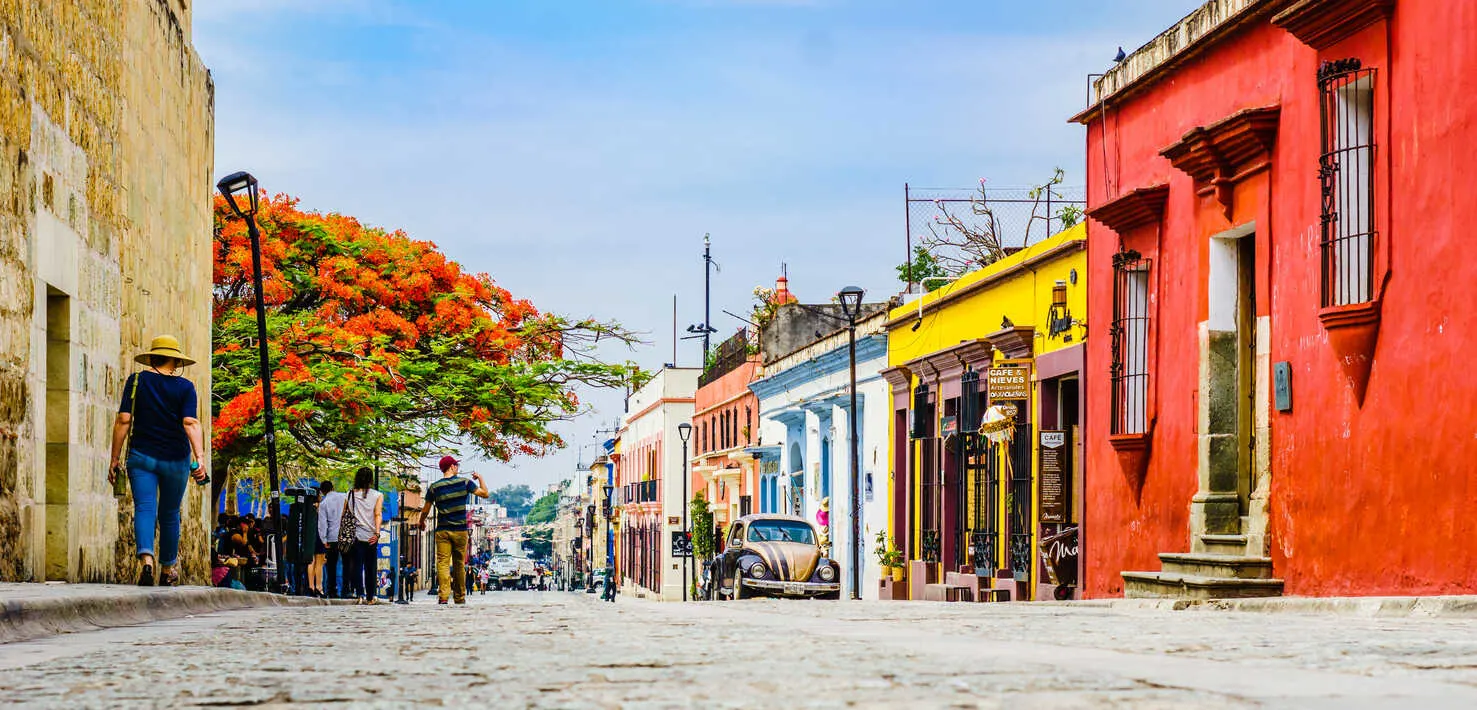
By Bel Woodhouse
Obtaining a Mexican visa is a straightforward and accessible process, whether you’re planning a short visit or a permanent move. This simplicity was a significant factor in my decision to relocate here, as other countries often present more challenging paths to long-term residency. I’m frequently asked about the process, and I’m happy to say that securing a visa or residency in Mexico has never been easier. Friends of mine were recently approved for Permanent Residency within days; they flew into Cozumel and found their residency cards waiting for them at the Immigration Office.
Mexico’s visa procedures are notably user-friendly compared to many other countries. Unlike other nations, Mexico doesn’t require large fixed deposits, notarized or apostilled documents, criminal background checks, or medical exams. For short-term stays, tourists can still obtain a visa upon arrival, valid for up to six months. However, recent changes mean the length of stay is no longer automatically 180 days; immigration officers now have discretion, and some visitors may be granted shorter durations. If you want a guaranteed six-month stay, it’s advisable to apply for a tourist visa at a Mexican consulate in your home country.
One of the best things about Mexico’s visa policies is the flexibility it offers. You can come and explore the country without worrying about complex paperwork or embassy appointments. Whether you drive down or fly—thanks to affordable flights from major airlines like American Airlines, United, Air Canada, and Delta—you can easily spend several months exploring different locations to see which suits your lifestyle best.
For those considering a longer stay, Mexico offers two primary residency options: Temporary Residency and Permanent Residency. Temporary Residency is valid for six months to four years and is ideal for those seeking flexibility. The financial requirements are accessible, requiring proof of a monthly income of $4,350 over the past six months (some consulates may ask for 12 months) or a savings balance of $73,200 over the past year. Alternatively, if you own property in Mexico valued at over $586,000 and free of any mortgage, this can also qualify.
For those looking to make Mexico their permanent home, the Permanent Residency visa never expires and offers a path to citizenship. The financial requirements are higher, with proof of a monthly income of $7,300 over the past six months or a savings balance of $293,000 over the past year.
The application process for both types of residency is straightforward. Start by booking an appointment with your local Mexican Embassy—there’s one in every state. They’ll provide a list of required documents and forms, which you’ll need to complete and submit at the consulate. The system is now largely electronic, meaning you can often get a decision in days rather than the weeks or months it used to take. Once approved, you’ll receive a Canje visa, valid for 180 days. Upon arrival in Mexico, you’ll need to visit a Department of Immigration office within 30 days to finalize your residency.
The costs associated with residency are reasonable. A one-year temporary residency card costs $5,328 pesos (approximately $314), while permanent residency is $6,495 pesos (around $383). Once you’re a legal resident, you gain access to Mexico’s public health plans. INSABI offers free basic care, while IMSS covers most medical conditions and medications, with annual costs ranging from $483 to $1,160, depending on your age.
For residents aged 60 and over, Mexico’s INAPAM Senior Discount Program offers incredible savings. The INAPAM card provides discounts on utilities, property taxes, transportation, and purchases at pharmacies, restaurants, and clinics. Many urban areas also offer senior discount cards for public transportation, cutting fares in half.
Mexico’s welcoming visa policies and generous benefits reflect its commitment to making foreigners feel at home. Whether you’re retiring, working remotely, or simply seeking a change, Mexico offers a smooth path to residency and a vibrant, affordable lifestyle. With streamlined processes and flexible options, it’s easier than ever to make your dream of living in Mexico a reality.
Full Guide to Visa and Residency in Mexico Here.
The World’s Best Retirement Havens for 2025
The World’s Best Retirement Havens for 2025
20 Countries Compared, Contrasted, Ranked, and Rated. You don’t have to be rich to enjoy a pampered retirement, you just need to know where to go. With our 34th Annual Global Retirement Index, our experts hand you a detailed roadmap. Details—and a Special Offer—Here

By submitting your email address, you will receive a free subscription to IL Postcards and special offers from International Living and our affiliates. You can unsubscribe at any time, and we encourage you to read more about our Privacy Policy.
2. Costa Rica
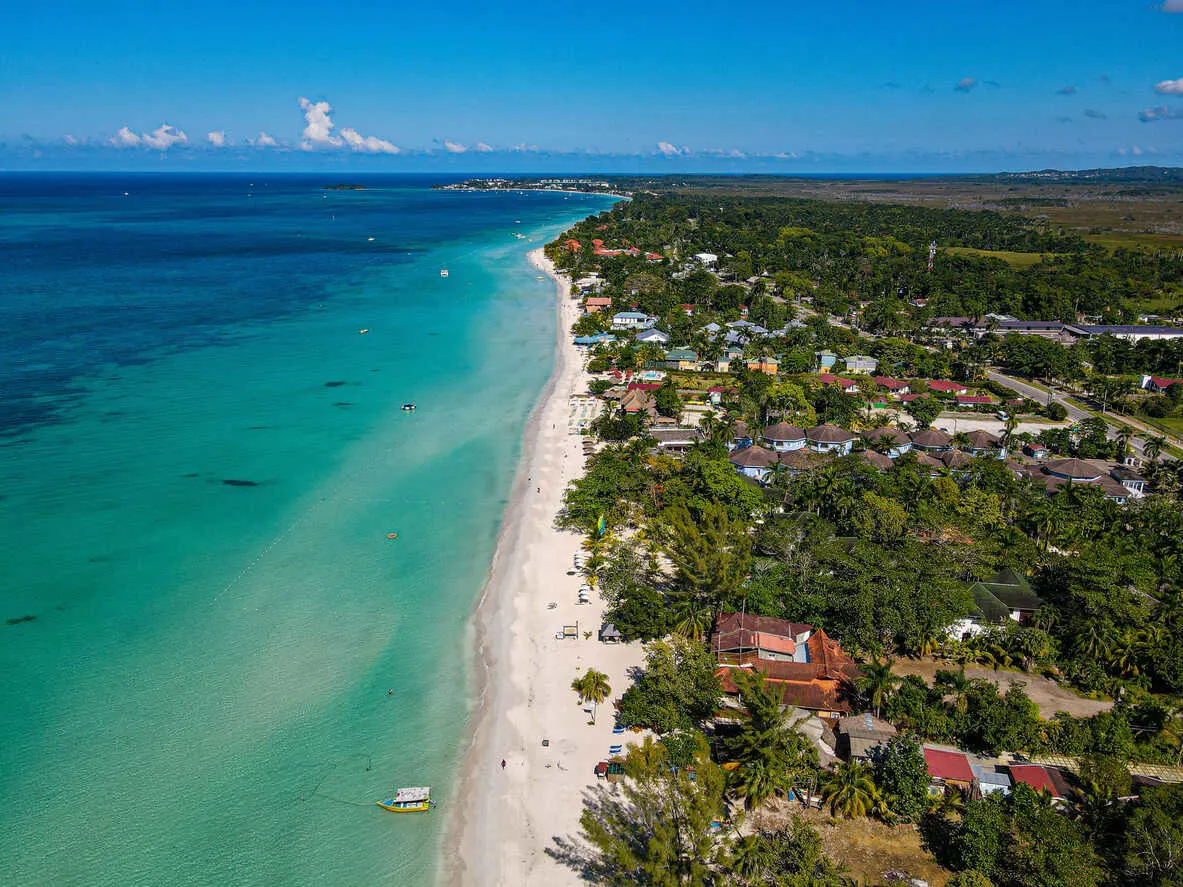
By Bekah Bottone
Costa Rica offers expats a variety of visa options, making it both "easy" and "affordable" to obtain residency. This accessibility is one of the reasons Costa Rica remains a top destination for expats. If you don’t speak Spanish, I highly recommend working with a trustworthy lawyer.
When you enter Costa Rica as a tourist, you can now get stamped for up to 180 days, an increase from the previous 90-day limit. This change has been a welcome update, especially for snowbirds who can now stay longer while maintaining ties to their home countries. For many Canadians, this extended stay is ideal as it allows them to enjoy Costa Rica’s warm climate while preserving their healthcare coverage back home.
Before starting the residency process, I always suggest spending an extended period in Costa Rica. It’s essential to determine whether the country truly fits your lifestyle, and the best way to do that is by traveling around, meeting people, and exploring different regions. The residency process can take anywhere from six to 12 months, though for some, it has taken years. Permanent residency becomes an option after three years of temporary residency, and citizenship through naturalization is available after seven years, granting you voting rights and a Costa Rican passport.
There are three popular pathways to temporary residency in Costa Rica, each valid for two years and renewable as long as you continue to meet the requirements. Pensionado Residency is designed for retirees and requires proof of a minimum monthly income of $1,000 from a retirement fund or permanent pension source. Rentista Residency requires a $60,000 deposit in a local or foreign bank and a $2,500 monthly transfer into a Costa Rican account over two years. After 24 months, another $60,000 deposit is required to renew. Inversionista Residency requires a one-time investment of $150,000 in real estate, stocks, bonds, or other opportunities. Temporary residents are not permitted to work in Costa Rica. However, they can own a business, provided they hire employees to handle the actual labor.
US and Canadian citizens do not need an entry visa for Costa Rica, but their tourist visits are limited to 180 days. Upon arrival, visitors must show a return ticket or proof of onward travel and demonstrate proof of funds of at least $100 per month for the duration of their stay. Costa Rica also offers a Digital Nomad Visa, which is valid for 12 months and can be extended for an additional year if you’ve spent at least six months in the country during the first year. To qualify, you must have foreign employment or clients providing a minimum monthly income of $3,000. For those traveling with family, the income requirement increases to $4,000.
This combination of flexible visa options, an inviting climate, and a rich cultural environment makes Costa Rica an appealing destination for expats seeking a new adventure.
Full Guide to Visa and Residency in Costa Rica Here.
1. Panama
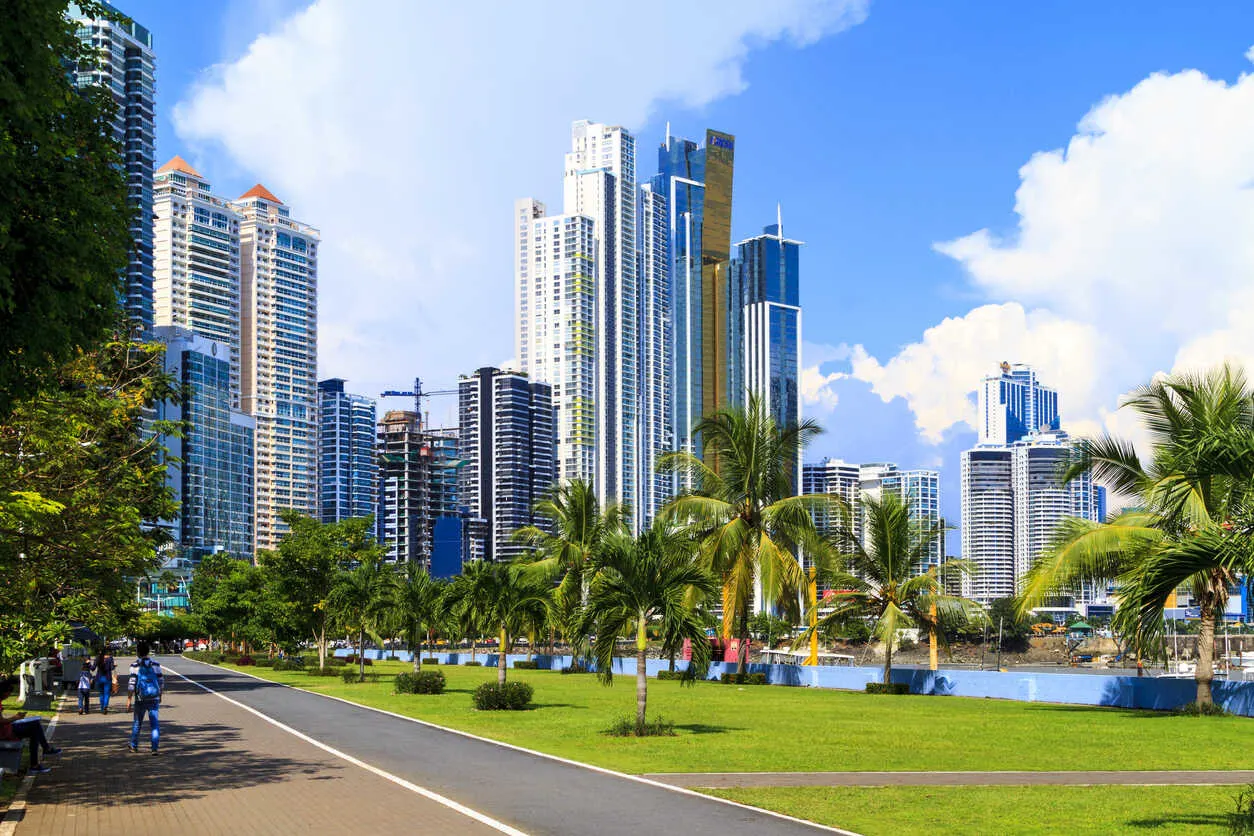
By Jessica Ramesch
Caribbean island, cosmopolitan city, or cool mountain haven? Everyone has a dream… though, like many, I believed mine was out of reach. Oceanview homes in warm, tropical locales seemed reserved for movie sets or the ultra-wealthy. Or so I thought…
Then, I discovered Panama—a place so welcoming that you can easily test-drive it for six months or become a resident and stay as long as you like. The choice is yours.
It’s no surprise that International Living has ranked Panama number one for ease of residency yet again this year—and for good reason. No other country has consistently made it easier for retiree expats to gain permanent residency. The Pensionado Visa is Panama’s star program, offering easy entry with proof of a verifiable pension of at least $1,000 a month ($1,250 for couples). Residency is granted indefinitely—no expiration date—and the benefits don’t stop there.
The Pensionado Program was designed to help retired Panamanians live active, socially engaged lives. This thinking extends to foreign retirees as well, with government-mandated discounts on everything from medical services and restaurant meals to travel costs and even utility bills. Imagine getting 50% off movie tickets, 25% off power bills, 20% off medications, and significant savings on plane tickets, hotel stays, and entertainment. These perks can make a huge difference in your cost of living.
Why does the government offer such a sweet deal? Panama deeply values its older citizens, and the program was created to ensure retirees can enjoy life to the fullest. The goal is simple: retirees should be able to afford not just medical care but also a social life—dining out, enjoying salsa concerts, or planning an island getaway. Whether it’s Jazz Fest or Carnival, you’ll see Panamanians of all ages celebrating together. Even in everyday situations like visiting the pharmacy or bank, respect for elders is ingrained, with seniors often waved to the front of the line. How cool is that?
Panama’s welcoming attitude extends beyond its Pensionado Visa. For those without a pension, the Friendly Nations Visa provides another path to residency. Created for professionals and entrepreneurs from countries that "maintain friendly, professional, economic, and investment relationships" with Panama, this visa allows you to gain residency through various means, such as investing $200,000 in real estate or opening a three-year fixed-term deposit account in a Panamanian bank.
If you’re not ready to commit just yet, Panama also offers opportunities to test-drive life in the country. US and Canadian citizens can stay up to six months without a visa. During this time, if you decide to apply for permanent residency, you can file and remain in the country while your application is processed. Alternatively, digital nomads and remote workers can apply for the Temporary Telework Visa, which allows them to stay for nine months, extendable to 18 months, with proof of foreign income of at least $3,000 a month ($4,000 for families).
Panama’s long history of welcoming foreigners and its stable environment make it an excellent choice for those seeking a new adventure. Whether you’re considering retirement or simply want a change of pace, Panama offers a warm, vibrant community where foreigners are treated with respect and inclusivity. Once you gain residency, you’ll enjoy the peace of mind that comes with knowing your rights and benefits are secure, even as laws evolve.
Panama isn’t just a destination; it’s a safe bet. From its robust healthcare system to its stable economy and inclusive social policies, Panama delivers on its promises, ensuring expats can thrive and live comfortably.
Full Guide to Visa and Residency in Panama Here.
The World’s Best Retirement Havens for 2025
The World’s Best Retirement Havens for 2025
20 Countries Compared, Contrasted, Ranked, and Rated. You don’t have to be rich to enjoy a pampered retirement, you just need to know where to go. With our 34th Annual Global Retirement Index, our experts hand you a detailed roadmap. Details—and a Special Offer—Here

By submitting your email address, you will receive a free subscription to IL Postcards and special offers from International Living and our affiliates. You can unsubscribe at any time, and we encourage you to read more about our Privacy Policy.
